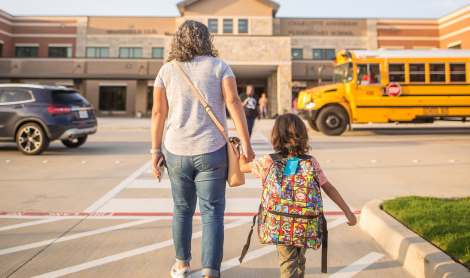Third in a series

David Greenberg
VP, Authorizer Learning & Development
What if your local high school was evaluated solely on its student achievement on state reading and math assessments, paired with graduation rates, ACT/SAT scores, and college acceptance rates? And nothing more? What else do you think would be important for people to know?
If we use only those typical metrics of success, we may miss key indicators such as critical thinking, decision-making, creativity, or technology skills—that support student success in college, careers, and community. We may miss other ways that schools and students demonstrate excellence and achievement. We may limit the types of schooling available to students.
That’s the idea behind NACSA’s initiative Evolving Excellence (which also happens to be the 2022 NACSA Leadership Conference theme October 24-27 in Minneapolis). It is time to evolve our understanding of excellence, continuing to emphasize (and measure) student literacy and numeracy, while expanding our evaluations to assess other skills and qualities. Using multiple measures is not a tool for keeping schools open that don’t serve students well. It is a more comprehensive approach to evaluating the impact schools are (or are not) having.
Authorizers around the country are embracing this challenge. This is not easy or fast work: it takes patience, reflection, research, and creativity. But it can be and is being done.
One example is Innovative Quality Schools (IQS) in Minnesota, a nonprofit authorizer. IQS authorizes 35 schools throughout the state, where the law itself states that part of the purpose of charter schools is to “measure learning outcomes and create different and innovative forms of measuring outcomes” and “establish new forms of accountability for schools.”
In 2017, the IQS Board of Directors prioritized the development of the Next Generation Assessment Portfolio System (NGAPS) which stresses the use of multiple measures to evaluate school quality. IQS contracted with external expertise to conduct research. In 2018, IQS launched a pilot with a group of volunteer schools in its portfolio that represent various innovations, student populations, and school structures. Each school partnered with experts in the field of measurement and assessment.
One of these schools is BlueSky Online School. IQS and BlueSky have both been interested in measuring and tracking students Social Emotional Learning (SEL) and/or 21st century skills with the understanding that it would be students’ SEL competencies—not the students’ mental health status—that would be part of an accountability system. BlueSky decided to hone in on responsible decision-making. The school worked with an assessment expert and began to develop rubrics and train staff on how to integrate the skills and assessments into the curriculum.
While aspects of this approach were valuable, Dan Ondich, school principal, and Laurie Schroeder, Executive Director at IQS, agreed that this initial scope was “too big.” The school was actually collecting too much data across too many indicators, and too often, for this to be sustainable. This scope also raised questions about data credibility.
The school is now developing, with the support of IQS and external expertise, a point-in-time assessment to be implemented three times per year focused on academic skills related to responsible decision-making. Laurie sees great value in this and believes that IQS itself “needs to take more leadership in developing some of these tools so common assessments could be implemented across schools. Not only will this ease the burden on schools, but it will also give us more data to learn from and potentially share with policymakers.” Neither Dan nor Laurie is frustrated by this shifting approach, as Dan recently shared in a meeting of school leaders and authorizers: “Innovation takes trial and error.”
IQS is excited to share their challenges and successes with other authorizers. We urge authorizers and other education leaders to come to the 2022 NACSA Leadership Conference in Minneapolis October 24-27, to learn firsthand, on IQS’ home turf, about their work, and that of SUNY and other authorizers making progress on multiple measures. Stay tuned for more stories from the field and resources from NACSA to help you embark on your own research and development with your schools on multiple measures.
Read the other blogs in this series:
- First in a series: What Can Tell Us More? Multiple Measures Can
- Second in a series: One Ingredient of Multiple Measures: Patience
- Fourth in a series: Supplementing, Not Replacing: How Multiple Measures Work


